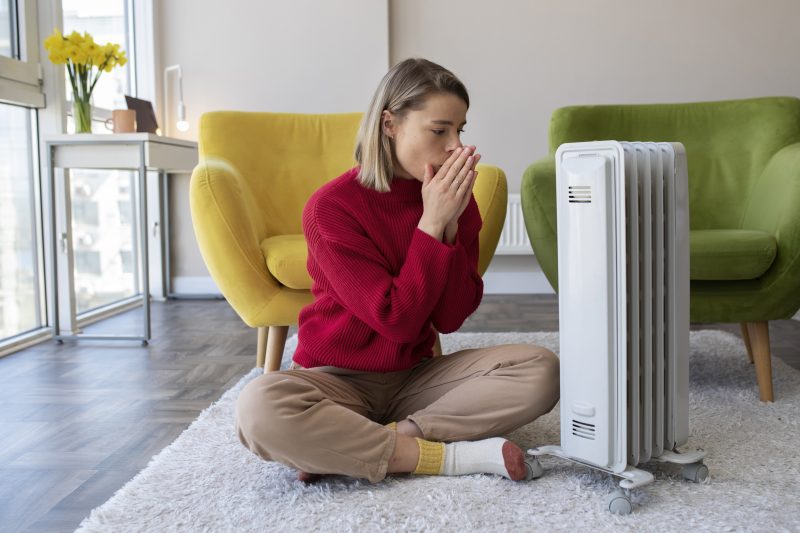How Dry Air Can Affect Your Health, Skin, and Your Home

Indoor air quality plays a crucial role in our overall well-being, yet many homeowners don’t realize just how much dry air can impact their daily lives. Whether it’s winter heating or a naturally arid climate, low humidity can lead to a host of issues affecting your health, skin, and home. Understanding the signs of low humidity and how to fix dry air in a room can make a significant difference in creating a healthier and more comfortable living space.
How Dry Air Impacts Your Health
When the air in your home lacks moisture, it can lead to a variety of health problems. Some of the most common dry air symptoms include:
- Respiratory Issues: Dry air can irritate the respiratory tract, leading to congestion, sore throats, and coughing. It can also worsen conditions like asthma and allergies.
- Nosebleeds: A lack of humidity can dry out the nasal passages, making them more prone to irritation and bleeding.
- Dry Eyes: Those who wear contact lenses or suffer from eye sensitivity may experience increased discomfort due to dry air.
- Increased Risk of Infections: The mucous membranes in your nose and throat act as a barrier against bacteria and viruses. When dry air weakens these defenses, it can increase susceptibility to colds and flu.
- Poor Sleep Quality: Dry air can cause throat irritation and congestion, leading to disrupted sleep patterns and snoring.
To combat these issues, HVAC professionals recommend maintaining a healthy indoor humidity level, typically between 30-50%. If you’re unsure about your home’s humidity levels, a consultation with an HVAC expert can help you determine the best solutions, such as whole-home humidifiers or improved ventilation systems.

The Effects of Dry Air on Your Skin
Your skin is one of the first areas to show the effects of low humidity. Signs of low humidity impacting the skin include:
- Dry, Itchy Skin: When the air lacks moisture, your skin loses hydration, leading to dryness and flaking.
- Cracked Lips: Lips are particularly sensitive to dry air and can become chapped quickly.
- Worsening Skin Conditions: Those with eczema or psoriasis may experience flare-ups due to reduced moisture in the air.
- Premature Aging: Long-term exposure to dry conditions can accelerate the appearance of fine lines and wrinkles.
- Increased Skin Sensitivity: Dry air can make the skin more prone to irritation and redness, even causing rashes in extreme cases.
A simple way to alleviate these issues is by using a humidifier and applying a good moisturizer. According to HVAC specialists, whole-home humidifiers integrated into your HVAC system can provide a more consistent level of moisture compared to portable units. If you frequently struggle with dry skin, an HVAC expert can assess your home’s air quality and recommend targeted solutions to help maintain a more comfortable environment.
How Low Humidity Can Damage Your Home
Beyond health concerns, dry air can also damage your home. Signs of low humidity in a household include:
- Cracked Wood Flooring and Furniture: Wood needs moisture to maintain its integrity. Low humidity can cause it to shrink, crack, or warp.
- Static Electricity: If you’re frequently getting shocked when touching doorknobs or electronics, it’s likely due to dry air.
- Peeling Paint and Wallpaper: When air is too dry, moisture evaporates from walls, leading to peeling or cracking.
- Gaps in Doors and Windows: Wood expands and contracts with moisture levels, and dry air can cause noticeable gaps around doors and window frames.
- Damaged Musical Instruments: If you own wooden instruments like guitars or pianos, dry air can cause warping, cracking, and tuning issues.
- Dried-Out Houseplants: Many indoor plants struggle in dry environments, with leaves turning brown or curling at the edges.
To prevent these issues, HVAC experts suggest monitoring indoor humidity levels and using a whole-home humidifier if necessary. If you’re noticing persistent issues such as cracking wood or excessive static, scheduling a consultation with an HVAC technician can provide long-term solutions to maintain the right moisture balance in your home.
Effective Ways to Increase Indoor Humidity
If you’re experiencing discomfort due to dry air, there are several ways to increase humidity levels:
- Use a Humidifier: The most effective way to add moisture to the air is with a humidifier. Whole-house models connected to your HVAC system are ideal for consistent humidity control.
- Place Water Basins Near Heat Sources: Setting bowls of water near radiators or vents allows moisture to evaporate into the air.
- Houseplants: Plants naturally release moisture into the air and can help maintain a healthier humidity level.
- Avoid Overheating Your Home: Excessive heating dries out the air. Keeping your thermostat at a moderate temperature can prevent moisture loss.
- Seal Leaks: Ensuring windows and doors are properly sealed can help maintain a balanced indoor environment.
- Hang Wet Laundry Indoors: Instead of using a dryer, hanging wet clothes indoors can help add moisture to the air naturally.
- Use Essential Oil Diffusers: Many diffusers also release water vapor into the air, providing mild humidity benefits.
For those unsure about the best approach, consulting with an HVAC professional can help identify the most effective strategies tailored to your specific home and climate.
Frequently Asked Questions About Dry Air
What is low humidity?
Low humidity refers to a lack of moisture in the air, generally below 30%. This can cause discomfort, health issues, and damage to your home.
What humidity is considered dry?
Any humidity level below 30% is considered dry. Ideally, indoor humidity should be maintained between 30-50% for comfort and health.
How to tell if a sore throat is from dry air?
If your sore throat worsens indoors but improves when you use a humidifier or breathe in steam, it’s likely caused by dry air rather than an infection.
Can dry air cause congestion?
Yes, dry air can irritate nasal passages, leading to congestion and discomfort. Increasing humidity levels can help alleviate symptoms.
Is humidity good for skin?
Yes, proper humidity levels help maintain skin hydration, preventing dryness, flaking, and irritation.
Does dry air cause nosebleeds?
Yes, dry air can dry out nasal passages, making them more prone to cracking and bleeding.
Does dry air make you cough?
Yes, dry air can irritate the throat and airways, leading to a persistent dry cough.

Take Control of Your Home’s Humidity Levels
Maintaining a healthy indoor humidity level is essential for your health, comfort, and home. If you notice dry air symptoms such as congestion, dry skin, or increased static electricity, it may be time to take action. Investing in a humidifier, making minor home adjustments, and seeking guidance from HVAC professionals can help ensure a balanced and comfortable indoor environment. If you need expert advice on improving air quality in your home, contacting an HVAC specialist can provide tailored solutions to address low humidity and its effects.

